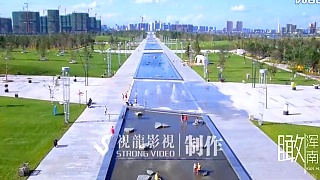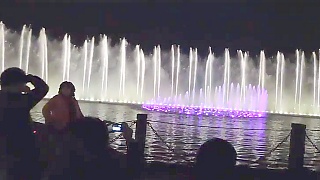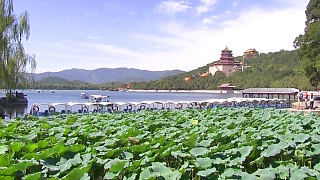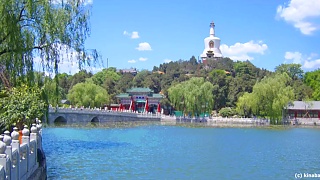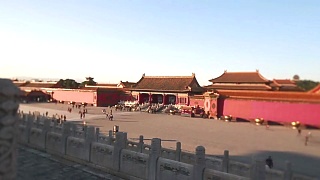With Seiu Travel ...
[640],shadow=true,start=,stop=Introduction to ShenYang
ShenYang is the capital city of LiaoNing province in northeast China. It is a major industrial and cultural center with a rich history dating back to ancient times. Known for its historical sites, modern infrastructure, and vibrant culture, Shenyang offers a diverse range of attractions for visitors.
Getting There
- By Air: Shenyang Taoxian International Airport (SHE) serves the city with domestic and international flights. The airport is about 20 km south of the city center.
- By Train: Shenyang has several major railway stations, including Shenyang North Railway Station and Shenyang Railway Station, offering high-speed rail connections to many cities in China.
- By Bus: Long-distance buses connect Shenyang with other major cities in northeast China and beyond.
Best Time to Visit
The best time to visit Shenyang is during the spring (April to June) and autumn (September to October) when the weather is mild and pleasant. Summers can be hot and humid, while winters are cold with occasional snowfall.
Main Attractions
- Shenyang Imperial Palace: Also known as Mukden Palace, this UNESCO World Heritage site is a smaller version of Beijing's Forbidden City and was the former imperial palace of the early Qing Dynasty.
- Zhao Mausoleum (Beiling Park): The mausoleum of the second Qing emperor, Huang Taiji, located within a beautiful park that is perfect for a leisurely stroll.
- Marshal Zhang's Mansion: The former residence of the warlord Zhang Zuolin and his son Zhang Xueliang, now a museum showcasing their lives and the history of the period.
- Shenyang Botanical Garden: A large botanical garden with diverse plant species, beautiful landscapes, and recreational facilities.
- 9.18 Historical Museum: A museum dedicated to the Mukden Incident (September 18, 1931) and the subsequent Japanese invasion of China, offering a poignant look at this period of history.
Cultural Highlights
- Liaoning Provincial Museum: One of the oldest and largest museums in China, featuring extensive collections of artifacts, artworks, and historical exhibits.
- Shenyang Opera House: A modern venue hosting a variety of performances, including traditional Chinese opera, ballet, and concerts.
- Shenyang International Horticultural Expo Garden: A vast park with themed gardens, exhibitions, and cultural events, showcasing horticultural achievements from around the world.
Accommodation
Shenyang offers a wide range of accommodation options, from luxury hotels to budget-friendly hostels. Some recommended places to stay include:
- Kempinski Hotel Shenyang: A luxury hotel with excellent facilities and service, located in the city center.
- Marriott Hotel Shenyang: A modern hotel offering comfortable rooms and convenient access to major attractions.
- Shenyang LazyBee International Youth Hostel: A budget-friendly option popular with backpackers and young travelers.
Dining
- Local Cuisine: Shenyang is known for its delicious Dongbei (Northeast) cuisine. Must-try dishes include Guo Bao Rou (sweet and sour pork), Dongbei Dumplings, and Laobian Dumplings.
- Restaurants: Recommended eateries include Laobian Dumpling Restaurant, Mukden Dumpling House, and Dongbei Ren (Northeasterners).
Practical Tips
- Language: Mandarin Chinese is the primary language spoken in Shenyang. Learning a few basic phrases can be helpful, and a translation app can be useful for non-Mandarin speakers.
- Currency: The local currency is the Chinese Yuan (CNY). Credit cards are widely accepted, but it's always good to have some cash on hand for small purchases.
- Health and Safety: Shenyang is generally a safe city, but it's always wise to stay aware of your surroundings. Tap water is not recommended for drinking; opt for bottled water instead.
- Transportation: Shenyang has an extensive public transportation system, including buses and a metro system, making it easy to get around the city.
Conclusion
Shenyang is a vibrant city with a rich history and cultural heritage. Whether you're exploring ancient palaces, enjoying local cuisine, or experiencing the city's modern attractions, Shenyang offers a diverse and memorable travel experience.

 ShenYang, provincial capital of LiaoNing, north east China
ShenYang, provincial capital of LiaoNing, north east China









